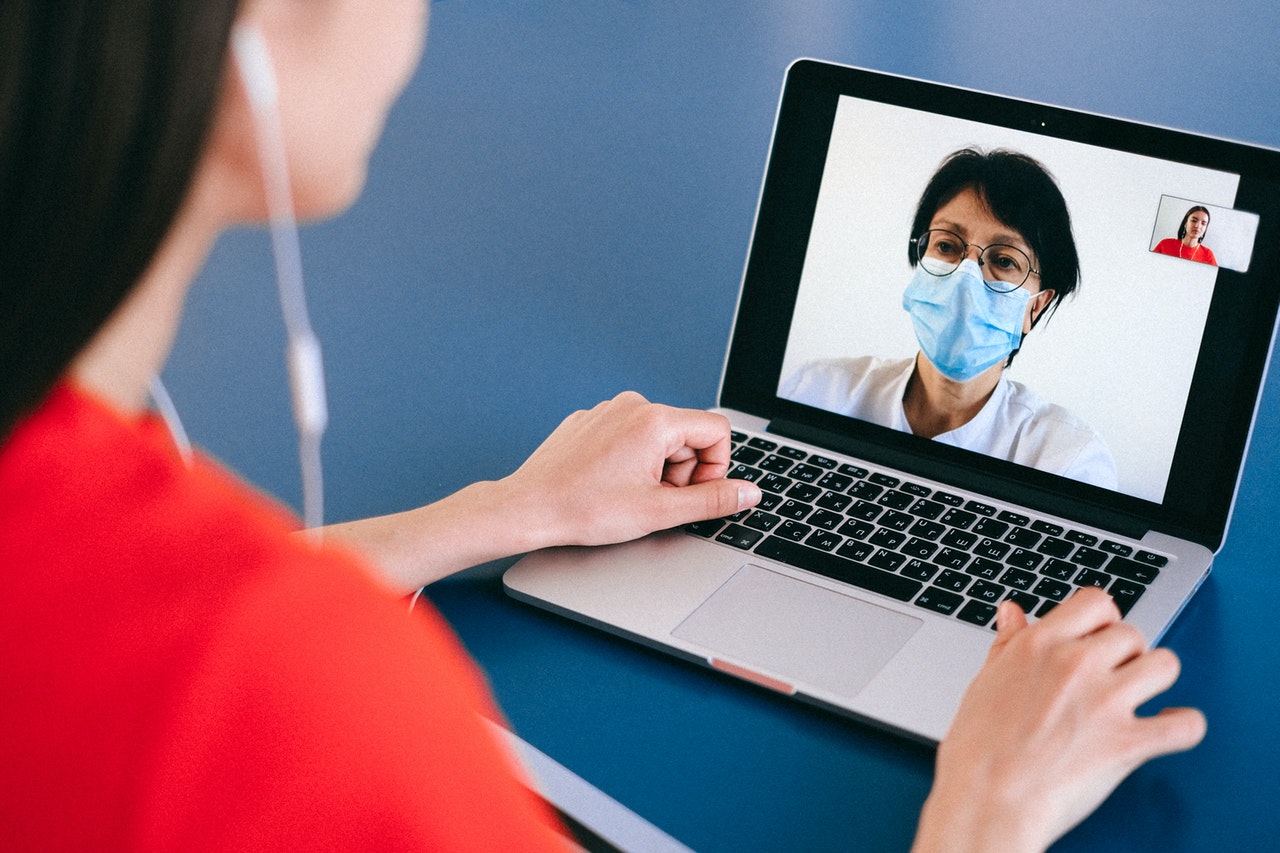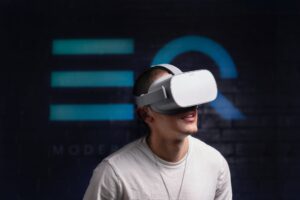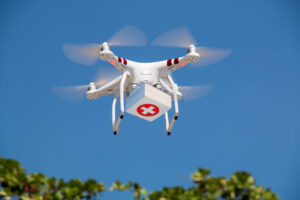Technology Trends in Healthcare 2021

The Healthcare sector has never had it so good. The convergence of various technologies has created a level-playing field that is improving healthcare outcomes and patient experience, making it a win-win for everybody. Increased digitization of healthcare information has put pharmacies, doctors , and hospitals online thereby reducing communication gaps, time-delays, and increasing cost-effectiveness of treatment.
Some technology trends that will make an impact this year…
E-health / Telehealth / Telemedicine
● E-health is a large, umbrella group of services that includes delivery of healthcare information to healthcare professionals, patients, and their family members. It also covers medical education for healthcare professionals and managing healthcare institutions using enterprise software, the internet, telecommunications, and mobile telephony.
● Telehealth is a subset of E-health. It covers all those services that improve the reach and quality of healthcare delivery to different strata of the population across different geographies. It includes public health function, surveillance, and health promotion.
● Telemedicine is a subset of Telehealth. It is more specifically focused on remote delivery and management of patient care. This includes remote consultation between doctor and patient, remote diagnosis and treatment, and remote medication management.
Healthcare apps on the smartphone
These apps record, manage, track, update and deliver data when and where required. They are being used for a wide variety of functions such as
● Managing healthcare information for doctors, patients nursing, and pharmacy staff in the form of Electronic Medical Records (EMR) of patients.
● They are used by hospital staff to manage administration better in the form of Hospital anagement Systems (HMS).
● They are used to find and connect doctors with patients
● Manage prescriptions and refills
● Create appointments and
● Make payments, and even
● Provide specific healthcare information or trends to interested subscribers
● They are also being used to diagnose certain conditions across different disciplines of medicine.
In short, if you can think of any need in the domain of healthcare, a mobile app can address
that.
AR and VR
 ● Augmented Reality adds a layer of presented information on top of existing reality. AR-based apps are being used very effectively to show/locate nearby hospitals or emergency medical care, to help patients describe their symptoms better, help nurses or trainee doctors find a particular nerve, vein, or artery, assist surgeons in the operating room, teach medical students better, help pharma companies explain drug information better, etc. The applications are endless, so watch this space.
● Augmented Reality adds a layer of presented information on top of existing reality. AR-based apps are being used very effectively to show/locate nearby hospitals or emergency medical care, to help patients describe their symptoms better, help nurses or trainee doctors find a particular nerve, vein, or artery, assist surgeons in the operating room, teach medical students better, help pharma companies explain drug information better, etc. The applications are endless, so watch this space.
● In Virtual Reality, there is no layer of reality and all the information presented is virtual in nature. VR is being used to train doctors and nurses, explain drug, disease, and therapy information to patients, by pharma companies to market drug information better, and by public healthcare agencies to spread awareness of a disease better. Patients with motor dysfunctions who are recovering from a stroke and patients with cognitive impairments like dementia who are trying to unlock their memories can do so better using VR.
Artificial Intelligence
AI-based analytics is a game-changer in healthcare as it offers better decision-making capabilities in every area of medicine. Learning algorithms can be fed data to achieve better diagnostics, create alternative treatments and healthcare processes and thereby improve patient outcomes.
Brain-computer interfaces are being used to help patients with neurological conditions to regain their lost ability to speak or communicate. Diagnostic images obtained from MRI, CT, X-ray, or Ultrasound scans can be interpreted better using AI-algorithms.
AI can enable remote diagnostics whereby patients in remote locations can send their scan images and obtain a diagnosis without the intervention of a doctor. Both doctors and pharma companies can better identify patients who are likely to develop resistance to a particular drug and design a workaround for the same. EMRs of patients can be run through an AI-algorithm to assess both short-term and long-term health risks to a patient. The list of possibilities is only growing by the day.
Healthcare trackers, wearables, and sensors
![]() The ubiquitous Fitbit, which is a wristband equipped with sensors to track the user’s physical activity is the best example of wearable technology applications in healthcare. But such innovations have come a long way since Fitbit. Today, wearables are helping women gain insights into their pregnancy, fertility, and general health. They are recording medical-grade electrocardiograms in order to detect the risk or symptoms of heart-attack and heart-failure. Sensors communicating via Bluetooth can signal rise or drop in temperature of infants at home or patients at a hospital. Like wearable watches, wearable rings are being used to track fitness.
The ubiquitous Fitbit, which is a wristband equipped with sensors to track the user’s physical activity is the best example of wearable technology applications in healthcare. But such innovations have come a long way since Fitbit. Today, wearables are helping women gain insights into their pregnancy, fertility, and general health. They are recording medical-grade electrocardiograms in order to detect the risk or symptoms of heart-attack and heart-failure. Sensors communicating via Bluetooth can signal rise or drop in temperature of infants at home or patients at a hospital. Like wearable watches, wearable rings are being used to track fitness.
Wearable hand-bands equipped with sensors can record the sleep patterns of a person and address issues like sleep disruption caused by various ailments. Smart-glasses are being used to record videos, superimpose them with other data to create an augmented reality video for patients and other case doctors. Smart hearing aids can filter out the noise and focus on one or more specific sources of sound. Wireless patient monitoring is a boon for doctors and their patients who are in the recovery or rehabilitation stage.
Future technological innovations in Healthcare
The future of healthcare looks exciting as more and more technologies are converging or become interoperable. Big data-driven analytics, miniaturization, digitization, and Internet-of-Things will create innumerable possibilities that will improve patient outcomes and reduce the cost of healthcare. Ultrasound machines that fit into a pocket, coupled with sensors that communicate with a mobile app can detect the onset of health conditions.
 While drones will assist in medical supplies, robots will assist doctors and nurses in the Operating Room or the ward. Wearable sensors and BP monitors combined with Big Data can analyze vast demographies of patients and predict emerging trends or waves in disease affliction. This will make it easy for Govt agencies to plan resource mobilization. Digital hearts and AI to detect cancers will make it easy to tackle fatal ailments. Combine all this with increased public-private participation in Healthcare; we will see commoditization and mass-commercialization that will make Healthcare affordable to one and all.
While drones will assist in medical supplies, robots will assist doctors and nurses in the Operating Room or the ward. Wearable sensors and BP monitors combined with Big Data can analyze vast demographies of patients and predict emerging trends or waves in disease affliction. This will make it easy for Govt agencies to plan resource mobilization. Digital hearts and AI to detect cancers will make it easy to tackle fatal ailments. Combine all this with increased public-private participation in Healthcare; we will see commoditization and mass-commercialization that will make Healthcare affordable to one and all.
